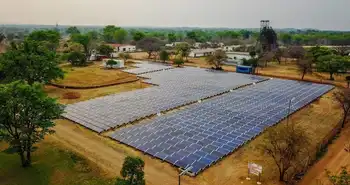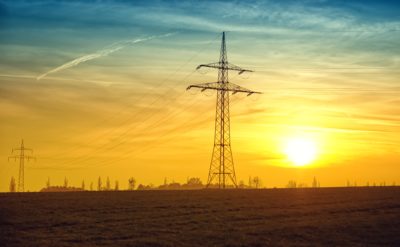Virginia Power drops idea for calculating profit
The utility has agreed to return to "pretty much traditional regulation with a few tweaks," said David Shuford, its vice president for state regulation.
Not all agree with that assessment.
Irene Leech, president of the Virginia Citizens Consumer Council, said the changes have improved the bill, but its terms are still far too sweet for the state's utilities. She said the measure guarantees utilities unwarranted profits while actually reducing their financial risk.
Jack Reasor, president and CEO of the Virginia, Maryland & Delaware Association of Electric Cooperatives, does not like a provision that would allow large commercial consumers to continue to shop around for electricity. If Virginia is going to return to regulation, it "needs to make a choice and not straddle the line," he said.
The proposed changes come from talks Dominion Virginia Power has had with the legislation's critics over the past two weeks.
The General Assembly commission overseeing the state's decade-old experiment with deregulation asked Deputy Attorney General Bill Mims to host a series of meetings to see if the utility and the bill's critics could reach agreement.
Dominion Virginia Power has dropped its proposed controversial formula for setting utility profits, based on utility bond interest. Instead, the company has agreed to have the State Corporation Commission set the allowed profit for utilities - on which consumer rates are based - in the same way it did in the past.
The company wants the law to say that an approved profit could be no lower than the average return for the utility's peers in the Southeast. The SCC would determine what utilities should be included in the peer group.
Shuford said the utility needs to earn at least as much profit as its peers to attract the investment needed to build expensive primary power plants, such as a proposed coal-burning plant in Southwest Virginia and a new nuclear reactor at Lake Anna, to meet growing electricity demand.
To enhance a utility's ability to attract investment in generation projects, the proposal now says the SCC could allow a utility to earn an additional 2 percent to 4 percent profit on new power plants.
As an incentive to operate efficiently, Dominion Virginia Power's original proposal would have allowed a utility to earn 1 percent above its approved profit before it would have to share any excess profit with consumers. The new proposal would require profit sharing with consumers after profits exceeded their approved level by half of a percent.
Utility earnings would be reviewed by the SCC every two years. Sixty percent of excess earnings in each year of the two-year review period would be shared with consumers through credits on their bills.
A utility could not seek a rate increase until its profits fell below the allowed mark by at least half a percent.
However, if rates climbed faster than the rate of inflation and profits exceeded what the SCC allowed, the commission could order all excess earnings returned to consumers. The SCC, in any case, could block rates from rising more than 2 percent above the yearly inflation rate.
Dominion Virginia Power also has agreed that the SCC should be able to cut rates if profits proved excessive for two consecutive biennial reviews.
Other changes in the original legislation:
- Give smaller commercial customers the ability to aggregate their power usage in order to take advantage of a provision in the proposal that would allow power customers using more than 5 megawatts of electricity to shop for an electricity source cheaper than their local utility.
- Allow utilities to voluntarily adopt a portfolio of electricity produced from renewable energy sources, such as wind or solar.
Related News

Africa's Electricity Unlikely To Go Green This Decade
LONDON - New research today from the University of Oxford predicts that total electricity generation across the African continent will double by 2030, with fossil fuels continuing to dominate the energy mix posing potential risk to global climate change commitments.
The study, published in Nature Energy, uses a state-of-the art machine-learning technique to analyse the pipeline of more than 2,500 currently-planned power plants and their chances of being successfully commissioned. It shows the share of non-hydro renewables in African electricity generation is likely to remain below 10% in 2030, although this varies by region.
'Africa's electricity demand is set to increase significantly…





